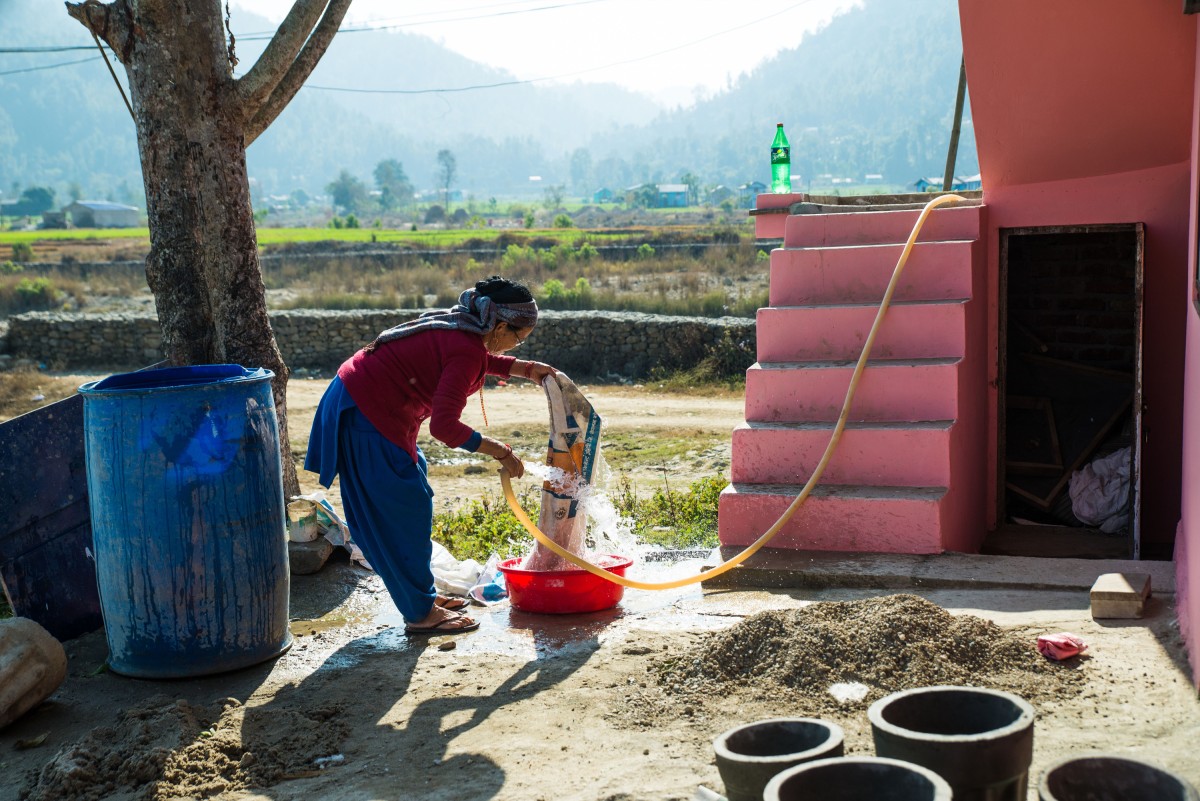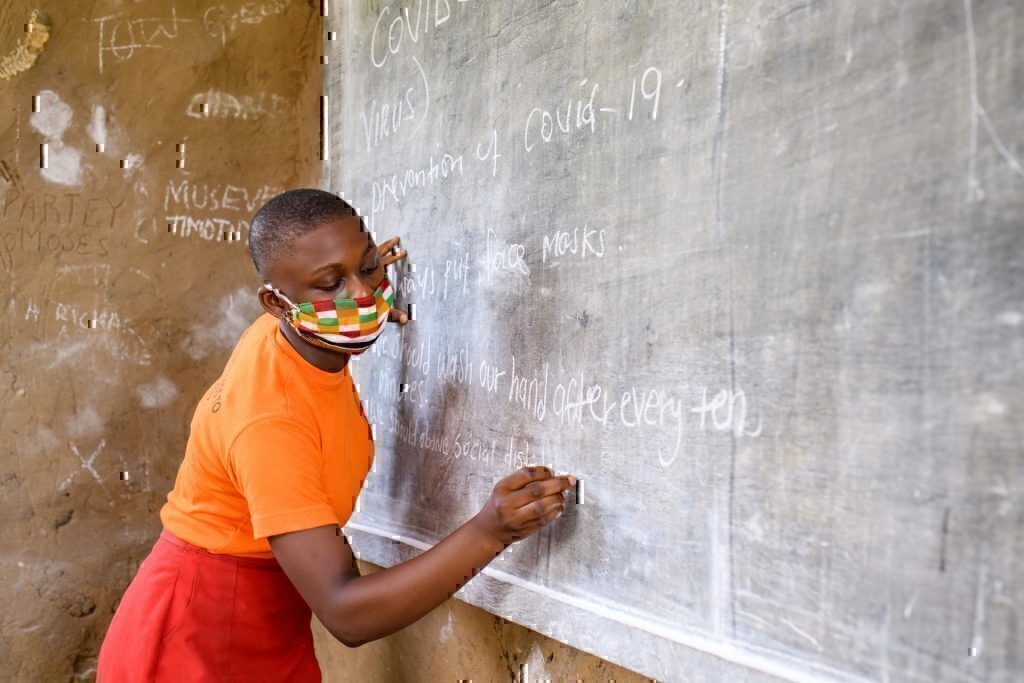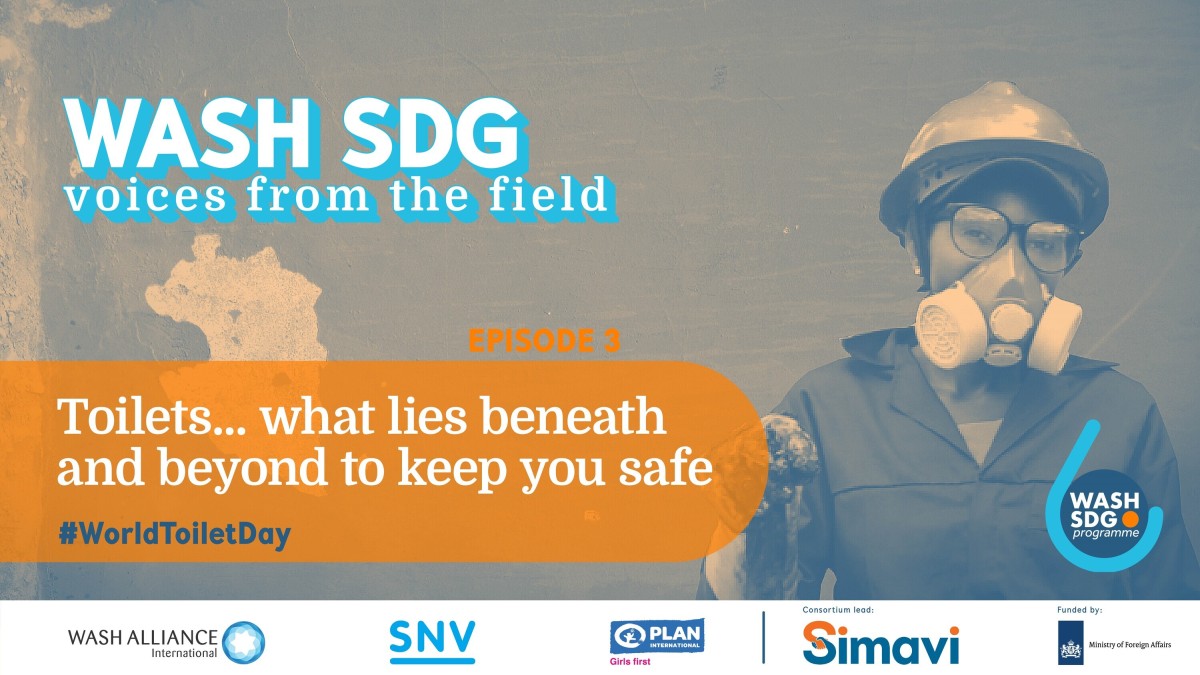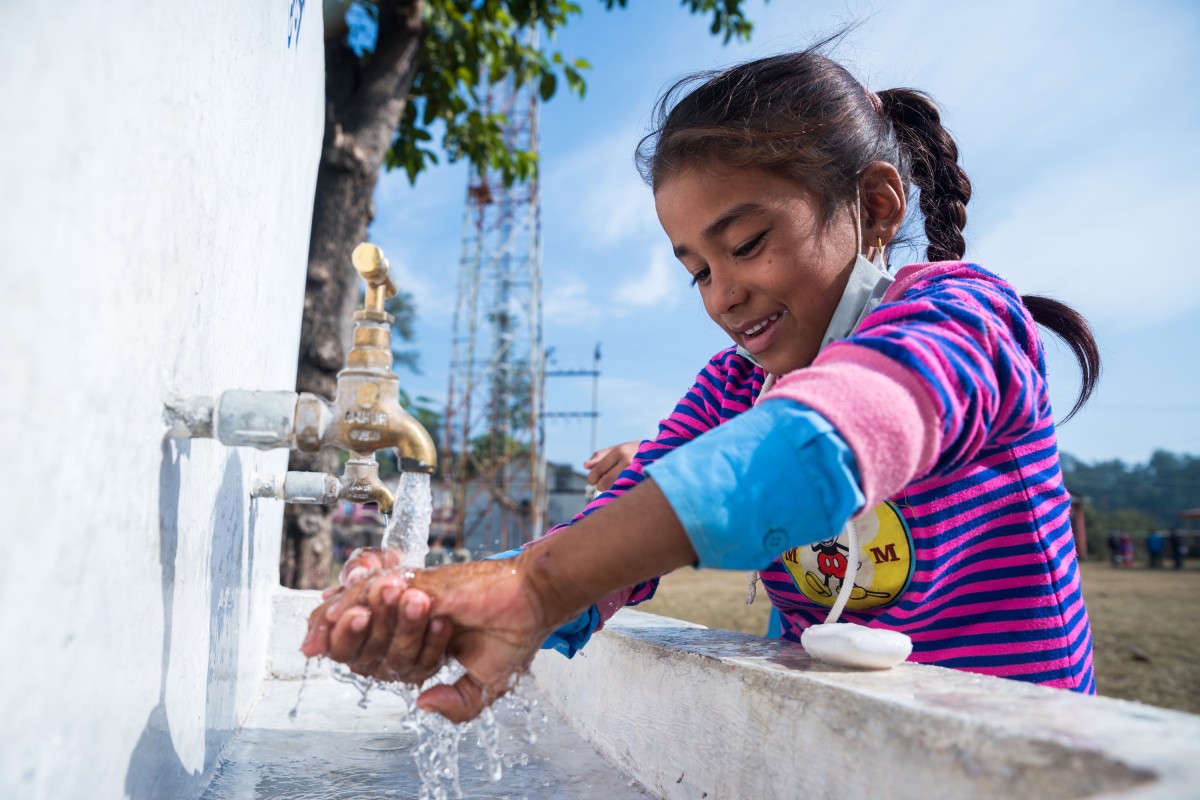Looking back: the WASH SDG programme in 2021
Looking back on 2020 we wrote, ‘2020 will go down in history as the year of the COVID-19 pandemic’. And unfortunately, we can say the same about 2021…
As many of the countries that we work in still don’t have access to vaccines, prevention remains very important. The WASH SDG Programme proved to be more relevant than ever, as WASH and social distancing are central to preventing the spread of the virus. Looking back on 2021 we’re very proud that we were able to continue our activities. We love to share some of the highlights with you!

WASH First
As a response to the COVID pandemic the WASH SDG programme received additional funding in 2020 and 2021 from the Dutch Ministry of Foreigen Affairs to implement “WASH First - Scaling up WASH SDG efforts: The first line of defense against COVID-19”. The aim was to promote health-related hygiene practices to prevent the further spread of COVID-19 in at-risk countries through awareness raising and improved access to WASH services. Over 9 million people were reached with mass media campaigns and awareness raising campaigns in Ethiopia, Indonesia, Uganda, Kenya, Mozambique and Rwanda.

World Water Day 2021: Water2us
Water, of course, means different things to different people. For instance, it may be important for your hygiene, family, cultural practices or wellbeing. For our World Water Day campaign, we asked people involved in the WASH SDG Programme what water means to them, and what they do to contribute to ensure water for all.
Podcast: WASH SDG Voices from the field
2021 was the year that we launched our first podcast episode! In WASH SDG voices from the field, we get in touch with WASH experts working in several countries in Africa and Asia. In our first three episodes we talked about menstrual health, WASH and Integrated Water Resources Management (IWRM), and… toilets! We’re proud to announce that the podcast series will continue in 2022.
Listen to our podcast on:

Gender and Social Inclusion (GESI) Community of Practice (COP) Webinars
To what extent have the approaches to include the excluded in decision making been effective? In 2020, we already wrote about our new GESI community of practice. Nowadays, this community has about 120 members from both in- and outside the WASH SDG Programme. Last year, seven webinars and learning clinics took place to discuss topics such as hard to reach people and places, female entrepreneurs and GESI and climate resilience. Within the MTR, the joint GESI learning exchanges were identified as having led to a positive and successful trajectory, with great country involvement and cross-learning, so they will be continued during 2022.
Upcoming GESI COP Webinars
31st of March - 10 – 11.30 am CEST
Reflection on the impact of Covid-19 on WASH sustainability, esp. handwashing
Meeting ID: 840 573 4001
Passcode: 057780
5th of May 10-11.30 am CEST
Reaching older people and older people’s organisations
Meeting ID: 840 573 4001
Passcode: 057780
16th of June 10-11.30 am CEST
Working with faith-based groups and religious leaders
Meeting ID: 840 573 4001
Passcode: 057780
The midterm review (MTR)
The midterm review of the WASH SDG programme was undertaken as an internal review process of which the insights are used to improve our implementation and collaboration for the remainder of this programme and a possible next phase. And, we’re proud to say that good progress has been made to date! The clear link between WASH and COVID-19 prevention was noticeable in some key result areas of the programme, particularly as can be seen from the high increase in people accessing basic hygiene. In general, the consortium is largely on track to reach the targets, both on service levels as well as on various aspects of sustainability.
Water
Overall quantitative targets: 450,000 people
Improved access (at mid-term) 194,969 people (43%)
Sanitation
Overall quantitative targets 2 million people
Improved access (at mid-term) 863,231 people (43%)
Hygiene
Overall quantitative targets 1.6 million people
Improved access (at mid-term) 2,672,109 people (167%)
The programme has made good progress in the following subjects:
- The implementation of behaviour change strategies by local agencies and organisations, leading to increased demand and improved WASH practices.
- The participation of women and girls in the WASH decision-making structures and WASH activities in the communities has improved and is progressing towards a level in which they are increasingly making decisions about their own lives
- There is an increased availability of WASH products and services for the bottom of the pyramid, which is the largest but poorest socio-economic group. Yet, this stays behind as not in all sub-programmes the WASH entrepreneurs are sufficiently aware or have the capacity to reach this group.
- The governmental policy and legislation environment for WASH for all have been substantially improved at the district and municipalities level, where the programme is implemented.
Although the results are encouraging, the Consortium acknowledges that progress in lower wealth quintiles remains slower than for others and needs continuing (and sometimes intensifying) efforts to address their specific barriers. The level of advancement towards the global programme outcomes does suggest that overall service-level targets are likely to be achieved by the end of the programme period.

Sustainability Checks
Sustainability in WASH depends on many factors. Therefore, the consortium did a first sustainability check to review and assess the sustainability of WASH facilities, services, and behaviours with a national, subnational, or programme-based scope. The outcome of the sustainability checks helps to get a better understanding of the missing conditions required for its future sustainability and informed the planning for 2022.
The development of the sustainability tools provided valuable discussions and dialogues with the Dutch Ministry of Foreign Affairs’ Directoraat Generaal Internationale Samenwerking (DGIS), and created a mutual understanding of the commitment to and challenges of the process. The WASH SDG programme currently works in 73 administrative units (with 72 sub-national authorities) for which 72 made formal agreements for the sustainability checks. The sustainability compacts and checks proved to be useful tools that spearheaded valuable discussions and dialogue with local government representatives around sustainability of WASH services, beyond the programme interventions.
World Water Week 2021: Building Resilience Faster
7 days, 5 WASH SDG and 2 WASH First sessions and visitors from all over the world. All with a focus on concrete solutions to the world’s greatest water-related challenges.
You can watch all the sessions that we hosted via our world water week page.
Looking forward
From looking back on 2021 to looking forward to 2022. The WASH SDG programme will focus on implementing the recommendations of the internal mid-term review as well as the external evaluation. The sub-programmes will even more than before focus on the sustainability of the services, especially also considering the impact on climate change. In addition to the ‘Gender and Social Inclusion (GESI)’, the ‘Sustainability Clause, Compacts and Checks (SCCC) learning and knowledge development trajectories, the consortium will also set up a WASH and Climate learning and knowledge development trajectory. In addition to that we will prepare for the end-line survey and the second round of sustainability checks.
Overall, we are proud of the entire WASH SDG team, including the many partner organizations in-country, that despite the impact of Covid-19, good progress has been made to date, when reflecting on the overall targets of the programme, both in terms of access to WASH services, as well as in terms of the behaviour change. We’re looking forward to a year in which we can build on lessons learned and can strengthen the work already started.
About the WASH SDG programme
Worldwide, over 2 billion people still do not have access to clean drinking water and 3.6 billion can’t (safely) access a toilet. The WASH SDG Programme is a six-year programme that works on improving access to, and use of, safe drinking water, sanitation, and hygiene in seven countries in Africa and Asia. The collaboration consists of SNV, WASH Alliance International and Plan International, and is financed by the Netherlands’ Ministry of Foreign Affairs. Within the programme, special attention is given to gender and social inclusion, climate vulnerability, and resilience. We work with local partners to achieve sustainable change.



